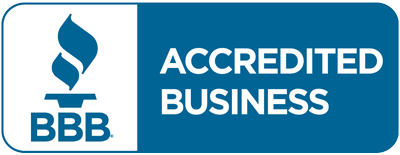New York No Surprises Act
When receiving emergency care or treatment from an out-of-network provider at an in-network hospital or ambulatory surgical center in New York, you are safeguarded against balance billing. In such instances, you should not be billed more than the copayments, coinsurance, and/or deductible outlined in your plan.
What is “balance billing” (sometimes referred to as “surprise billing”)?
When you seek medical attention from a doctor or healthcare provider, you may be responsible for certain out-of-pocket expenses, such as copayments, coinsurance, or deductibles. If you visit a provider or facility outside of your health plan’s network, you might face additional costs or be required to cover the entire bill.
“Out-of-network” refers to providers and facilities that have not entered into a contract with your health plan to deliver services. These out-of-network providers may invoice you for the disparity between what your plan pays and the total amount charged for a service, which is known as “balance billing.” This amount is typically higher than in-network costs for the same service and may not be applied towards your plan’s deductible or annual out-of-pocket limit.
“Surprise billing” occurs when you receive an unexpected balance bill. This can happen in situations where you have no control over the providers involved in your care, such as during emergencies or when you schedule a visit at an in-network facility but receive care from an out-of-network provider unexpectedly. Depending on the procedure or service, surprise medical bills could amount to thousands of dollars.
You are protected from balance billing for:
Emergency services:
If you experience a medical emergency and receive emergency services from an out-of-network provider or hospital, the maximum amount they can bill you is equivalent to your plan’s in-network cost-sharing amount (e.g., copayments, coinsurance, and deductibles). You cannot be balance billed for these emergency services. This protection extends to services received after achieving a stable condition unless you provide written consent and waive your protection against balance billing for these post-stabilization services. If your insurance ID card indicates “fully insured coverage,” you cannot waive your protection against balance billing for post-stabilization services.
Certain services at an in-network hospital or ambulatory surgical center:
When you receive services from an in-network hospital or ambulatory surgical center, certain providers within may be out-of-network. In such cases, these providers can only bill you up to your plan’s in-network cost-sharing amount. These providers cannot balance bill you and are prohibited from requesting you to waive your protection against balance billing.
If you receive other types of services at these in-network facilities, out-of-network providers cannot balance bill you unless you provide written consent and waive your protections. If your insurance ID card indicates “fully insured coverage,” you cannot waive your protections against balance billing for these other services if they result in a surprise bill. Surprise bills occur when you are at an in-network hospital or ambulatory surgical facility and a participating doctor is unavailable, a non-participating doctor provides services without your knowledge, or unforeseen medical services are rendered.
Services referred by your in-network doctor:
If your insurance ID card indicates “fully insured coverage,” surprise bills include scenarios where your in-network doctor refers you to an out-of-network provider without your consent. These providers cannot balance bill you and are prohibited from requesting you to waive your protection against balance billing. To fully benefit from the balance billing protection, you may need to sign a form available on the Department of Financial Services’ website.
You are never obligated to waive your protections against balance billing, nor are you required to seek out-of-network care. You have the freedom to choose a provider or facility within your plan’s network.
When balance billing is prohibited, you also have the following protections:
You are only responsible for paying your share of the cost, such as copayments, coinsurance, and deductibles that you would pay if the provider or facility were in-network. Your health plan will directly cover any additional costs to out-of-network providers and facilities. Generally, your health plan must:
- Cover emergency services without requiring prior authorization.
- Cover emergency services provided by out-of-network providers.
- Calculate your cost-sharing based on what it would pay an in-network provider or facility, as indicated in your explanation of benefits.
- Include any amount you pay for emergency services or out-of-network services toward your in-network deductible and out-of-pocket limit.
If you believe you have been erroneously billed and your coverage falls under New York law (“fully insured coverage”), contact the New York State Department of Financial Services at (800) 342-3736 or surprisemedicalbills@dfs.ny.
For self-funded coverage or coverage purchased outside New York, contact CMS at 1-800-985-3059. For information about your rights under federal law, visit www.cms.gov/nosurprises/






 Website Design by
Website Design by